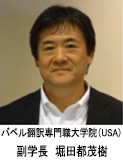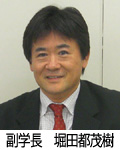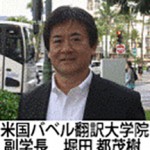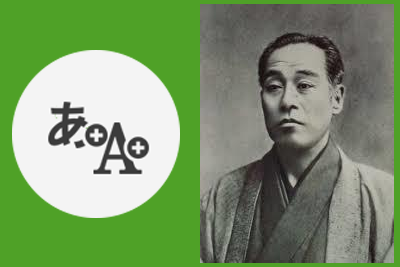
今回は前回に次いで、福沢諭吉に学ぶ視座を小浜逸郎氏の著書『福澤諭吉 しなやかな日本精神』を参考に考えていきたいと思います。
「日本の言語は不便利にして、文章も演説も出来えぬゆえ、英語を使い、英文を用いるなぞと、取るにも足らぬバカを言う(文部大臣森有礼)という者あり」と喝破した福澤諭吉。
諭吉が「学問のすすめ」を発刊したとほぼ同時期に、初代文部大臣、森有礼が英語公用語論を唱えた時に、福沢諭吉が森を罵倒した言葉です。
私企業ならまだしも、安易に戦略特区で公共のサービスの場を英語化しようなどという提案をしている国と地方自治体、スパーグローバルユニバーシティを謳い、日本の高等教育を単純に英語化しようとしている文科省、おまけに英語教育の早期化を小学校で成算もなく進めようとしている文科省等々を考えると改めて諭吉のことばを戒めとしたいと思います。
また、英語を高等教育の言語に採用したシンガポール他、アジア各国、一方日本は日本語による高等教育を堅持しながらも、理系に関しては米国に次いでのノーベル賞を取得してきたという実績。しかし、残念なことに、2,000年を100として、科学技術関係予算の推移を主要国で比較すると、アメリカ、ドイツ、イギリスは1.5倍、韓国は4.7倍、なんと中国は11倍。対して、日本はなんと横ばいの1.06倍。技術立国を真っ向から否定していく政府には呆れます。
諭吉が教えてくれている、西洋と東洋の半ばにあり、日本の在り方を常に考えて、安易に西洋につくこともなく、東洋、日本、そして西洋もしつかり学ぶ姿勢は、日本政府はもちろんのこと我々がしつかりと獲得しておかなければならないでしょう。
改めて、日本の現状を憂い、日本の在るべき姿を問題意識をもって考える時期にきていることを昨今の日本政府の施策をみるたびに思います。
諭吉は明治維新というまさに転換期にこうしたことを考えていたわけですが、我々も今が転換期、転換しなければならない時期にきているという強い認識を持ちたいと考えます。
ご存じだったでしょうか、小浜氏の著書でも引用されていますが(京都大学大学院教授 藤井聡作成データ)OECDが発表している主要国の名目GDPの推移、1990年を100として、ドイツ、フランス、イタリアは200以上、アメリカ、イギリス、カナダは300以上、ところが日本はなんと横ばい。おまけに、1995年から2015年までの20年間の名目GDP成長率は世界の主要国80か国中、最低。いきおい名目賃金も20年間下がり続けているという惨状の日本。こんな現実を意図的にか?政府はもちろん、マスコミも一切触れていないという不可思議さ。
福澤諭吉が生きていればこう思うのではないかと思います。
現状の日本の亡国の3大危機と敢えて言えば、その最たるものは、国民の危機意識の欠如、国を想う意識欠如、いわば、‘ゆでガエルの状態の日本人’を思わざるを得ません。日本の経済的凋落(為政者の失政)を横目に、隣の大国、中国が着々と日本を侵略し(土地を買いあさり)、日本を属国にと目論んでいる状況の中で、今こそ目覚めるときが来ているように思います。
小浜氏も危機意識をもって強く主張しているのは、2つの亡国の危機。
一つは、財務省の緊縮財政路線。すなわち、成長を否定する財務官僚の愚策。これによる今回の各地の水害の主要因であるインフラの整備の遅れ、科学技術の予算削減による技術立国の危機、軍事予算の削減から隣国中国と圧倒的差を付けられつつある国を自力で守る力の弱体化。日本国の愚策は情けない限りです。
その背景には、国の借金1,000兆円、国民一人当たり800万円という財政破綻論のデマ。
国債の発行は全て円建てで破綻などありえない、おまけにあたかも国民に借金があるように(実は国民が債権者)プロパガンダをながしています。
二つ目の亡国の危機は、グローバリズム、新自由主義に対抗する考えが希薄なことです。実質的な移民化政策、教育の英語化、電力の自由化、水道の民営化等も実のところグローバル企業(中国も含む)の餌食にされているだけの現状をどこまで認識しているのでしょうか。
それもこれも日本独特の民間議員を野放図にした結果であることは承知しているでしょうか。議員でも何でもない財界の要人を、未来投資会議、経済財政諮問会議等の名目で参画させ、実のところかれらが自分たちの関連した企業に利益誘導をしている(健全なロビーイングならまだしも)、私利をむさぼる構造を生み出してしまった日本。
この稿では決して政治に深入りしたいわけではないのですが、今の日本を健全に憂うる姿勢が望まれます。
福澤諭吉は、一般に誤解されているような西洋かぶれではなく、真摯に日本を想い、西洋の文物をいわば‘翻訳的方法’で、しつかり咀嚼し、日本的な文脈で‘翻案’していく姿勢を堅持していました。第二の福澤諭吉の誕生が待たれます。
– 副学長から聞く - 翻訳専門職大学院で翻訳キャリアを創る方法

海外からも参加できるオンライン説明会
◆ 卒業生のキャリアカウンセリングを担当する副学長が、入学及び学習システムからカリキュラム、各種奨学金制度、修了生の活躍、修了後のフォローアップなどを総合的に説明いたします。
◆ 海外在住の方にも参加いただけるように、インターネットweb会議システムのZoomを使って行います。 奮ってご参加ください。Zoomのやさしい使い方ガイドはこちらからお送りします。

Tomoki Hotta
Vice Chancellor
Babel University Professional School of Translation
In this article, we’ll consider what we can learn from Fukuzawa Yukichi’s viewpoints, referring to Itsuo Kohama’s recent book Fukuzawa Yukichi and Japan’s Graceful Spirit.
Fukuzawa announced bluntly that, “The language of Japanese is deemed inconvenient, and is not sufficient for writing compositions or public speaking. Therefore, we should use English and write in English – at least this is the foolish nonsense that some people propose.”
At around the same time, Fukuzawa published An Encouragement of Learning, Japan’s first Minister of Education Mori Arinori called for switching to English as the country’s official language. The above quote is Fukuzawa Yukichi’s words of scathing reproach in response to Mori’s proposal.
It would be one thing if only private corporations were making the switch to English, but unfortunately, that’s not the case. National and local governments are glibly proposing strategic “English only” districts, or areas where public services are offered only in English. Then there’s the Ministry of Education, Culture, Sports, Science, and Technology (MEXT), that insists on creating “super global” universities and casually switching higher education in Japa to English. What’s more, MEXT is pushing forward policies to introduce English in elementary schools for earlier grades, even though the success of such policies is doubtful. In light of this recent activity, Fukuzawa’s words sound as a warning for the Japanese.
What’s more, while Singapore and other Asian countries adopted English as the language used in their higher education, Japan has remained adamant about using Japanese in its higher education. What’s interesting is that Japan has won several Nobel Prizes in the sciences, putting it right behind the U.S. at the top of the list for Nobel Prize for sciences. However, compared to the year 2000, a comparison of shifts in the science and technology budgets for major countries shows that America, Germany, and England have allotted 1.5 times more funds for science and technology, and Korea 4.7 times. China has set aside a surprising 11 times more funds for science and technology. Japan – whose allotted 1.06 times more funds in these fields – has shown almost no change. The government of Japan’s blatant downplay of its role as a technology-intensive nation is shocking.
The Japanese people and government must adopt an attitude for learning similar to that which Fukuzawa Yukichi taught. Fukuzawa advocated standing between the East and the West – always thinking of Japan’s role and not simply following the West, but also learning from the East, Japan itself, and the West as well.
Considering recent policies enacted by the Japanese government, it’s time to be concerned again about Japan’s current condition and examine just what kind of country Japan should be.
Fukuzawa Yukichi contemplated such questions after the Meiji Restoration, which was a great turning point for Japan. The Japanese need to be aware of the fact that now is also at a turning point – a period where Japan must make a shift.
Many are already aware of the following data, also cited by Kohama in his book (data provided by Kyoto University Graduate School professor Satoshi Fujii) from OECD’s report on shifts in nominal GDP for major countries. Setting the year 1990 as the base year (100), Germany, France, and Italy are currently at 200 and above for nominal GDP, while the U.S., England, and Canada are at 300 and above. However, Japan has exhibited almost no growth. What’s more, during the 20-year period from 1995 to 2015, Japan’s nominal GPD rate of growth has been the lowest of all 80 major countries. Japan’s deplorable situation doesn’t stop there – nominal wages have continued to decline as well during that same 20-year period. Is Japan’s current situation intentional? What’s incredible is that not only the government but the media as well makes no mention of these issues.
If Fukuzawa Yukichi were alive today, he probably would have had the following thoughts…
If one were to venture to list the three dangers threatening modern Japan, they would be the lack of citizens’ awareness of danger and a lack of concern for the country. The Japanese today resemble the fable of a frog being slowly boiled alive. Neighboring China continues to cast sidelong glances at Japan as it struggles with economic decline (due to the misgovernment of government officials), looking for ways to encroach upon Japan’s borders (buying whatever they can lay their hands on), and make Japan a Chinese protectorate. It is in the midst of such conditions that the Japanese must wake up to what’s going on.
Kohama also has a sense of impending danger and asserts that there are two other dangers in particular threatening Japan.
The first is Japan’s Ministry of Finances’ reduced budget policies, which are the foolish plans of finance bureaucrats who renounce growth. These policies have resulted in delays in infrastructure maintenance, which was the primary reason for recent water damage in various areas. Such policies have also resulted in budget cuts in science and technology, which has threatened Japan’s status as a technology-oriented nation, and military budget cuts, that have led to Japan’s decreasing ability to protect itself as a nation. These budget cuts have also created an overwhelming disparity between Japan and neighboring China. Japan’s foolish policies are deplorable, to say the least.
Behind such policies are rumors of economic collapse, with Japan’s debt supposedly at 1,000 trillion JPY, or approximately eight million JPY of debt per person. The government, however, issues bonds calculated in JPY as if there’s no possibility of bankruptcy, and spreads propaganda insinuating that its citizens are the ones burdened with debt (while in actuality Japanese citizens are creditors).
The second danger is minimal opposition in Japan to globalism and neoliberalism. How many people are aware that increased immigration policies, shifts in education to English, the liberalization of electricity, privatization of waterworks, and other policies are leading to Japan falling prey to global corporations?
How many are aware that such problems are the result of the reckless actions of Japan’s unique private members of the Diet? These “members,” who aren’t members of the Diet but rather prominent players in the financial world, are allowed to nominally participate in Japan’s Future Council, the Economic and Finance Advisory Council, etc. What these “members” are really doing is looking out for the interests of their own corporations (it would be one thing if they were simply engaged in honest lobbying). Japan is thus creating a structure that allows enterprises to greedily pursue personal gain.
My intent in this article is not to get mired down by political issues, but I do believe Japan’s people need to be concerned about the current health of Japan.
Fukuzawa Yukichi did not merely side with the West as many often believe, but earnestly cared about Japan and adhered to a policy of fully understanding things Western, using what’s called a “translational approach” – adopting Western ideas into the context of Japanese society. What Japan desperately needs now is another Fukuzawa Yukichi.




